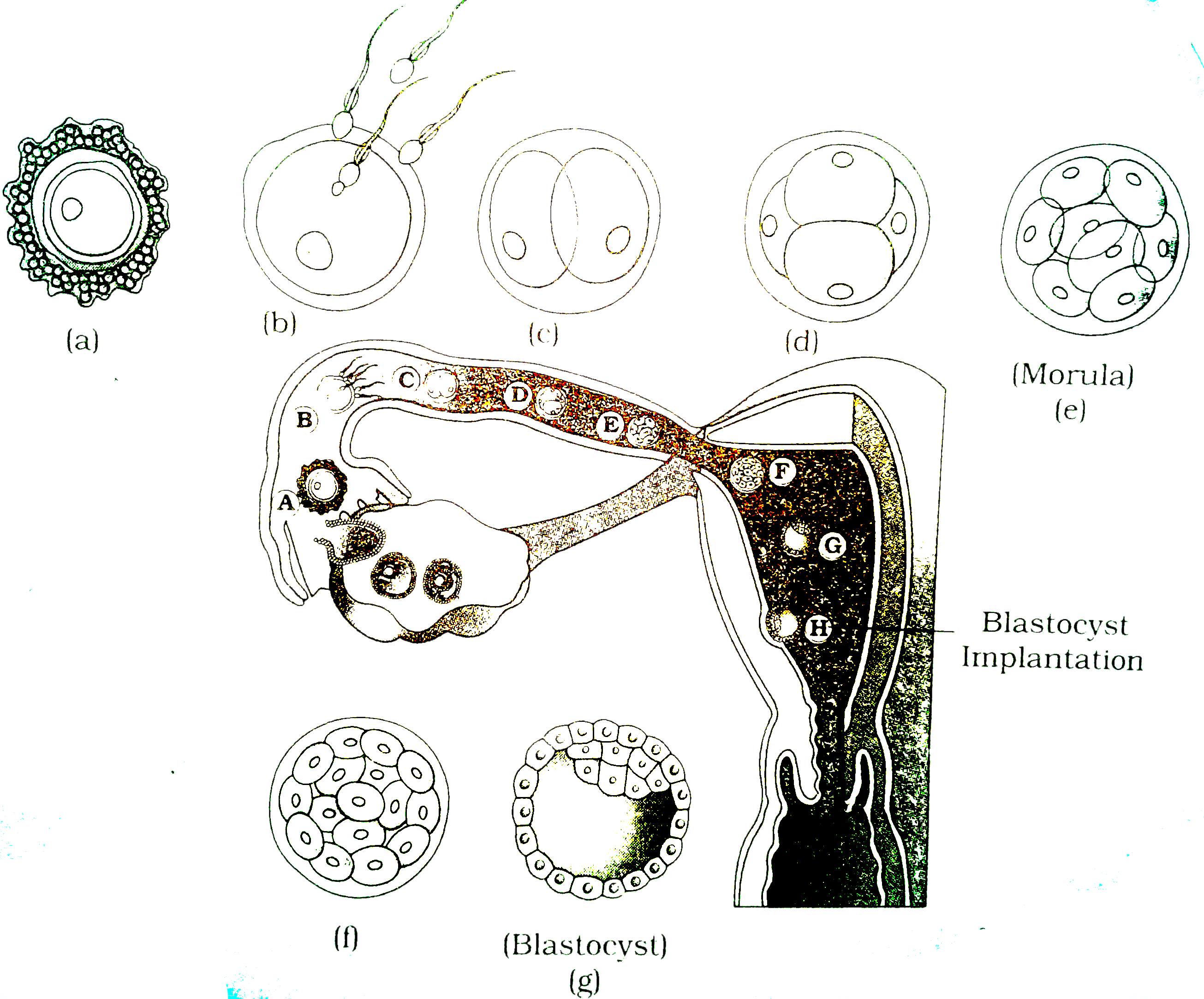Describe the post-zygotic events leading to implantation and placenta formation in humans. Mention any two functions of placenta.
Video Solution
Text Solution
Soon after formation of zygote cleavage divisions start in the zygote as it moves through the oviduct towards uterus. The zygote forms daughter cells called blastomeres. The embryo with 8 to 16 blastomeres is called morula. The morula continues to divide and Morula transforms into blastocyst. The blastomeres in the blastocyst are arranged in two Flat layers. Outer layer Implantation is called trophoblast and inner group of cells inner cell mass. The trophoblast gets attached to endometrium of uterus and the inner cell mass gets differentiated into embryo. Attachment of blastocyst to the inner layer of uterus is called implantation and it leads to pregnancy. After implantation finger like projections appear on the trophoblast called chorionic villi which are surrounded by the uterine tissue and maternal blood. The chorionic villi and uterine tissue become interdigitated with each other and jointly form a structural and functional unit called placenta. The placenta is connected to the embryo through umbilical cord
Functions of Placenta
(i)The placenta facilitates the supply of oxygen and nutrients to the embryo and also removal of and waste materials produced by the embryo.
(ii) It acts as an endocrine gland and produces hormones like human chorionic gonadotropin (hCG). human placental lactogen (HPL). estrogen, progestogens and relaxin.

|
Topper's Solved these Questions
- REPRODUCTIONBOOK - TRUEMAN BIOLOGYCHAPTER - REPRODUCTIONEXERCISE - SECTION -C
22 Videos
- Protista BOOK - TRUEMAN BIOLOGYCHAPTER - Protista EXERCISE - ASSERTION AND REASON
5 Videos
- Reproduction In OrganismsBOOK - TRUEMAN BIOLOGYCHAPTER - Reproduction In OrganismsEXERCISE - MULTIPLE CHOICE QUESTION
128 Videos
Similar Questions
Mention any two functions of NGOs
View SolutionMention any two functions of ribs.
View SolutionMention any two functions of World Bank.
View SolutionMention any 'two' functions of uterus?
View SolutionMention any 'two' functions of uterus?
View SolutionWhat is placenta ? Mention two important functions of placenta.
View SolutionDescribe the functions of humans placenta .
View SolutionWhat is placenta? Explain its function in humans.
View SolutionWhat is placenta? Explain its function in humans.
View SolutionDescribe in brief the structure and function of placenta.
View Solution
